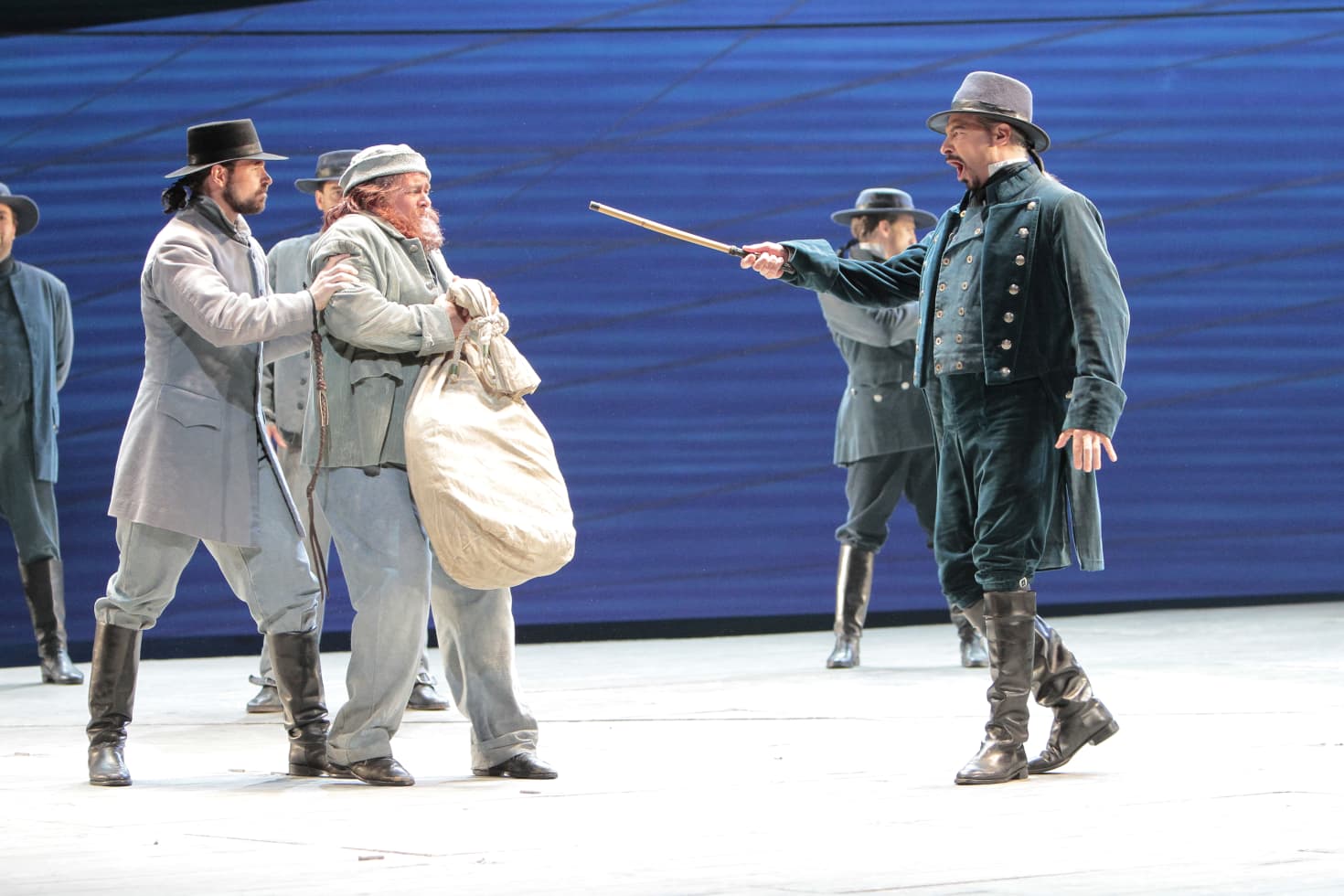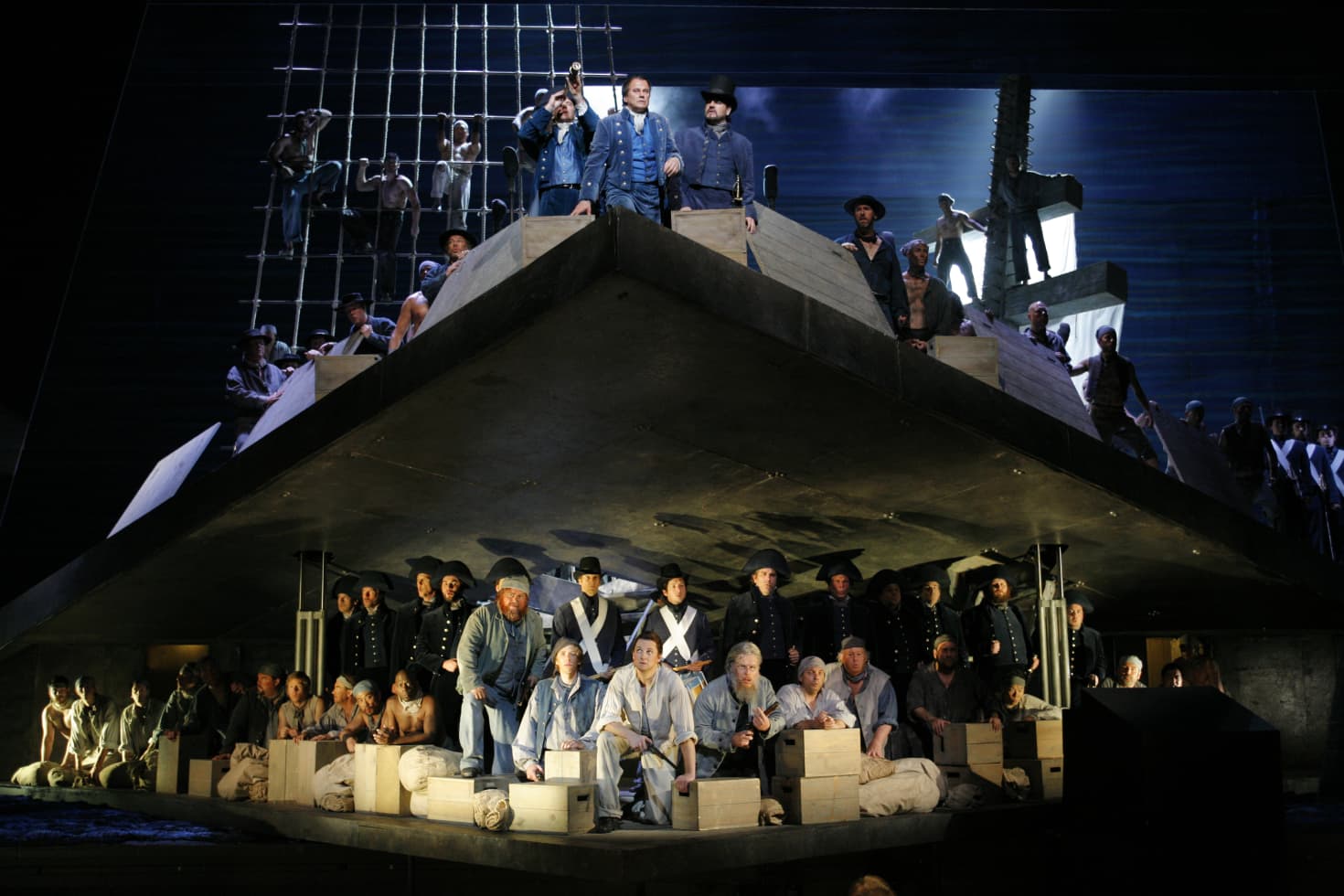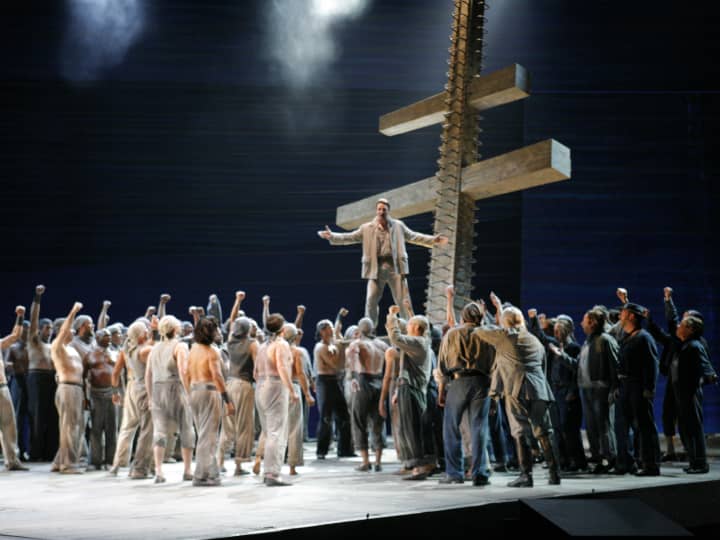Melville’s story was in its way a frank confession of bewilderment. Forster and Britten understand the bewilderment still, years later, but the expanded frameworks of their understanding let them find underneath, and under the decks, another reason to continue.
Dr. Mitchell Morris joins us as a guest contributor for June in recognition of LGBTQ+ Pride Month.
When the writer Herman Melville died in 1891, he seemed to many of his American contemporaries as, at most, an interesting but minor writer. His early South Seas novels Typee (1846) and Omoo (1847) were colorful, romantic adventure tales built in part on Melville’s own experiences at sea (though his later novels in the genre found less appreciation). Most of Melville’s public were probably bewildered by the extraordinary super-novel Moby-Dick (1851); the dark and eccentric follow-up, Pierre; or, The Ambiguities (1852) was a complete failure. Retreating into public lectureships, smaller forms of writing, and a great deal of liquor, Melville wrote with little expectation of further publication as his circumstances decayed. At his death, Melville still had admirers, but they were chiefly found in England.
And thus it was in 1919, when the literary scholar Raymond Weaver, in search of materials for a first biography of Melville, became acquainted with Melville’s granddaughter Eleanor Metcalfe. Among her possessions from her grandfather’s estate was an unfinished manuscript for a novel that seemed to be called Billy Budd, Foretopman. Weaver did not admire the manuscript, finding it less portentous but also less brilliant than Melville’s earlier books, and his comments in the biography, published in 1921, while alerting the world to the existence of the unfinished novel, also cast it as a misfire. Weaver’s biography of Melville, carelessly researched and pedestrian in its aesthetic tastes, was a disappointment to English literary audiences in particular; this new version of Melville was not one his serious readers recognized. Under pressure to include the manuscript as part of a complete works edition, Weaver produced a hasty (that is, sloppy) transcription of the text, with numerous misreadings and weird text repetitions that were treated as correct until a reliable edition was released in the early 1960s.
In its enigmatic messiness, Melville’s manuscript brings to mind other fragmentary collections and partial text-torsos left behind by authors. Take, for instance, the notorious case of revolutionary playwright Georg Büchner, who left behind scattered scenes for a play called Woyzeck at his death in 1837. Considered unreadable at the time of his death, the scraps of text were knitted together into a more or less publishable text by the popular Austrian novelist Karl Emil Franzos and published in 1879. This text, with its emblematic misspelling of the title as Wozzeck, became the basis for the libretto of the opera by Alban Berg. Benjamin Britten had hoped to study with Berg before his composition teacher quashed the idea by an appeal to Britten’s parents—because a languid Viennese neurasthenic with modernist ideas like Berg was an unwholesome mentor for a young English lad who should be suffering from sexualized bullying in a Public School, after all—but Britten could hardly have ignored the fascinating history of Berg’s libretto adaptation.

LA Opera's 2014 production of "Billy Budd" (Photo: Robert Millard)
In both cases, an unfinished text, by its very incomplete, open-ended quality, elicited a host of projections. Wozzeck and his persecutors, like Billy Budd and the men who bring about his undeserved downfall, are figures who attract personal investment. In their elusive unfinishedness they are tokens of what we in the audience think they might be, and they answer “yes” to all those who hail them as symbols of one thing and another. Billy Budd, more than most operas, tends to luxuriate in this ambivalence. It is hard to know in any detail why Claggart hates Billy, why Billy is willing to be faithful unto death to someone he has not ever seen, why Vere is determined that Billy must die while he himself must keep his own hands clean enough to be free of blame.
The critics, pointing frequently to Melville’s ferocious Calvinist beliefs in predestination and doom inherited from his mother, tend to cast such disillusioned queries as a kind of higher-pitched nondenominational metaphysics. The Ancient of Days has retired into the glooms of infinity, and we poor creatures are left to guess at His mysterious workings, not even sure that He’s listening anymore. In Moby-Dick, the biblical references came flowing freely in the best traditions of the old myth of New England. By Billy Budd, despite the overwhelming Christian symbolism, the scripture-quoting must share the stage with more recent political discourse.
And I think that this politics provides a crucial point in the work accomplished by E. M. Forster, Eric Crozier and Benjamin Britten when they came to adapt Melville’s novella into an opera. Forster had been interested in the novel since the 1920s. In the collection of university lectures published in 1927 as Aspects of the Novel, Forster laid significant stress on the metaphysical action he saw governing the plot of Billy Budd. Forster had spent enormous thought on the “problems” of same-sex relationships over the course of his life, not only out of his personal experience but also because of his connection with an important set of British social philosophers and early homosexual activists. Of these, the most important was undoubtably Edward Carpenter (1844-1929), a socialist philosopher, anti-vivisectionist, vegetarian and gay rights activist. Though he came from a well-connected scholarly family, Carpenter had turned away from his social position to teach working-class men. His passions for his male lovers as well as his hope for more democratic forms of government led him to travel as far as to Camden, New Jersey, to meet the aged Walt Whitman, whose defense of same-sex relationships as fundamental to democratic practice struck an especially resonant chord. It was a caress from Carpenter that Forster recalled as his impulse to write his gay novel Maurice (unpublished in his own lifetime).

LA Opera's 2014 production of "Billy Budd" (Photo: Robert Millard)
One idea central to this early style of homosexual rights activism came from a conception of same-sex bonds as an especially concrete manifestation of democratic bonds. Citing the soldiers of Sparta or the cult of adolescent boys in Classical Athens (but for some reason never the Sacred Band of Thebes) as role models, apologists for this quasi-democratic (homo)sexuality frequently stressed the egalitarian bliss of their imagined utopias, where desire, camaraderie and community went clinging together. Now contrast this to the dystopia of the British navy, a virulently authoritarian institution accustomed to strict hierarchy and brutal suppression as the keystone to managing male relationships. There was no way that Forster, a socialist, pacifist, homosexual activist, would gaze tolerantly upon such an institution—and the British navy of 1797 that Melville portrays, rocked by mutinous “French” uprisings against the near-slavery of average sailors’ lives, would have been even more vicious and cruel than usual.
Forster was in these respects an ideal collaborator for Britten. But there was more: it was while visiting American friends in Escondido (not exactly where one might have expected) that Britten perused that fateful issue of Gramophone containing an article by Forster on George Crabbe, the parson whose poems would form the basis of Britten's opera Peter Grimes. In the years after the epochal premiere of Peter Grimes (1945), Forster hinted heavily that he would love a chance to try his hand at a libretto. When Britten approached him soon afterward, both of them hit on Billy Budd and began to explore the possibilities of an opera on Melville’s novella. Eric Crozier, an experienced stage writer who had worked with Britten before, came on as Forster’s collaborator.
The resulting work is a marvel of uncertainty. Overall, the largest metaphor—the opera’s “weather,” if you will—is the misty seascape that confines and misleads the H.M.S. Indomitable. (The ship may possess the virtue of indomitability, but the marine skies are too foggy to give us evidence.) The haze makes outlines difficult to discern—musically, too, the melodies tend to fold back into billowy, rocking orchestral textures that move between painting what the sea sounds like and what we make of those sounds in our interior seas of feeling. Claggart is a sullen figure of hard malignity—but not motiveless, because especially now, after Stonewall, we are taught to see the signs of a sexuality plugged up and gone rancid. Vere is a virtuoso of rationalization, deliberately provoking a small dose of the very mutiny he claims to fear so that, with enough beating, his men will be brought back into subjection and his rule will be uncontested—all the while citing Greek classics and claiming his hands are pure. And there is Billy, a golden boy with the heart of a golden retriever, adored (and probably desired) by all, with such a glamorous exterior that his interior is almost invisible. Against the painful drama of dominance and submission that plays out on deck, however, there is the warmth and companionship of the men below decks, and the comforting sea shanties that shape the sound of men together with their comrades.
If the dystopia wins and Billy hangs, however, that does nothing to dissipate the power that still lingers in the mind’s ear, the power that comes from the collective voice of the men together. And that re-focus, in the opera, onto the potential and power of singing with others, that is the opera’s triumph. Melville’s story was in its way a frank confession of bewilderment. Forster and Britten understand the bewilderment still, years later, but the expanded frameworks of their understanding let them find underneath, and under the decks, another reason to continue. Perhaps it is not Vere’s “shining sail” in the epilogue, but one meant for us, when we hear the possibility of a utopia long in the preparation.
LA Opera's 2014 production of Billy Budd will be broadcast on KUSC's LA Opera on Air this Saturday, June 26 at 10:00 a.m. PT.
________________________________________________________________________________________

Mitchell Morris is the chair of LGBTQ Studies and chair of the Musicology Department at UCLA. Before coming to UCLA in 1997, he taught at UCSD and McGill University. His many specialties include Music, Gender, and Sexuality; Opera Studies; Music at the last fin-de-siecle; Russian and Soviet Music; American popular song; Ecomusicology; Film and TV Music. Learn more here.





